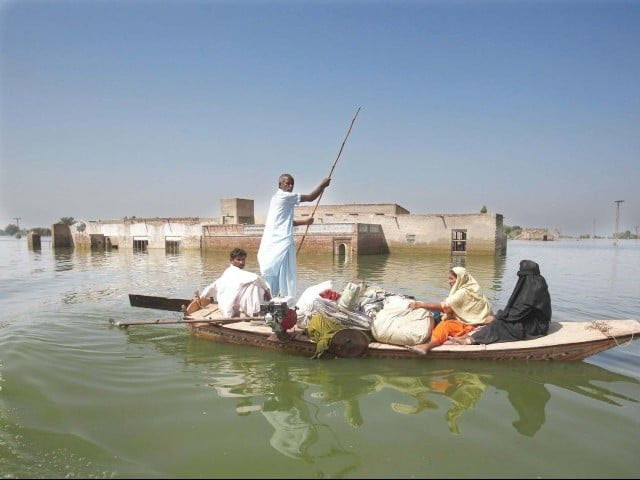SEPA to compile report on Manchhar Lake fishing community
In July 2010, Chief Justice Iftikhar Muhammad Chaudhry had taken notice of the increasing contamination in the lake.

The proceedings are based on reports regarding the growing contamination levels due to the disposal of effluents from the Main Nara Valley Drain into the lake. PHOTO: FILE
Manchhar Lake was once famous for its traditional floating houses built on the larger boats, where fishermen, locally known as Mohanas, have lived for decades. But recently, thousands have migrated to towns and larger cities and adopted other professions - mainly because various precious marine species have vanished and the migratory birds have stopped coming in because of the rise in contamination levels.
Last week, voicing grave concerns over the dying marine life as well as the rich culture of ‘floating houses’, the Supreme Court sought a response from the Sindh Environmental Protection Agency (Sepa) as to whether proper facilities were being provided to the fishing community dwelling along, what is believed to be one of the largest freshwater lakes in Asia, the Manchhar.
“The international standard [of pollutants] is 500 but their presence in the lake’s water is currently 1,500,” remarked one of the three judges who heard the suo motu case relating to the growing contamination levels in the lake. In July 2010, Chief Justice Iftikhar Muhammad Chaudhry had taken notice of the increasing contamination in the lake. Since then, the apex court has passed different orders to the stakeholders to take steps to save the largest freshwater reservoir in the country, and in turn, protect the marine life and the livelihood of the thousands engaged in the fishing profession.
The proceedings are based on reports regarding the growing contamination levels due to the disposal of effluents from the Main Nara Valley Drain into the lake.
According to reports, a 273-kilometre Right Bank Outfall (RBOD) was designed with a capacity of discharging 2,500 cusecs of saline water daily into the sea. The RBOD project director informed the judges on Thursday that 12 desalination plants had been installed along the lake to ensure the supply of potable water to the fishermen. “Wapda has installed these plants at a cost of Rs70 million,” the director said, adding that the inhabitants had access to potable water now.
He said that construction work on the RBOD project had already commenced and would be completed by 2014. The government has also released Rs1,200 million as funds.
The case will be taken up after four weeks in Islamabad.
Published in The Express Tribune, September 23rd, 2013.



















COMMENTS
Comments are moderated and generally will be posted if they are on-topic and not abusive.
For more information, please see our Comments FAQ